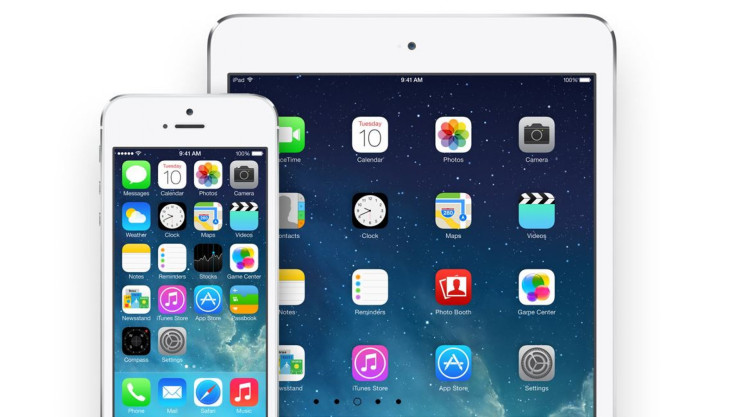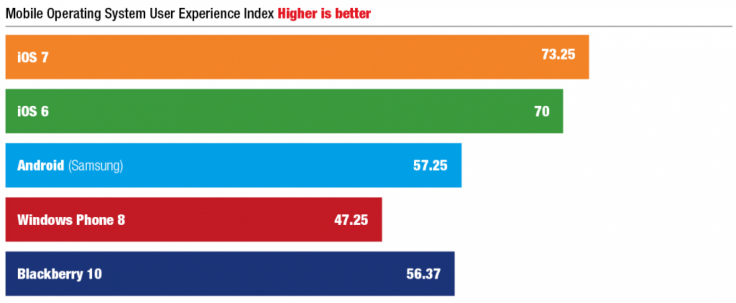Apple iOS 7 Outperforms iOS 6, Android, Windows Phone 8 And Blackberry 10 In ‘User Experience Shootout’

While users of iOS devices are increasingly adopting Apple’s (NASDAQ:AAPL) iOS 7, the redesigned version of the company’s mobile operating system, a new study showed that the latest iOS version outshone its predecessor as well as its top rivals in a number of user-experience tests.
The study, conducted by Paris-based Pfeiffer Consulting, compares the iOS 7 with four major mobile platforms currently in use, such as the iOS 6, Android, Windows Phone 8 and Blackberry 10, and rates them in terms of user experience.
It should be noted here that the study used Samsung’s (KRX:005930) implementation of Android, because according to the study, “given the overwhelming market share of Samsung in the smartphone market, it is clearly the most widely used version of Android currently distributed.”

“We do not look at features, we do not compare cutting-edge options and gadgets, we only look at aspects that have a direct impact on the day-to-day user experience of an average, non-technical user,” a statement from a report on the study said.
The aspects surveyed and rated by the study include the operating system’s cognitive load, efficiency and integration, options for customization and user-experience friction.
Cognitive load represents the sum of elements that users need to get familiar with in order to use a device spontaneously and intuitively. To calculate each operating system's cognitive load, the study counted the number of pre-installed apps, icons and other user-interaction elements in a default OS installation.

In this benchmark, iOS 7 was bested only by iOS 6, a difference that the study attributed to the addition of Control Center to the revamped version.
For the efficiency and integration benchmark, the study “analyzed access to key settings, integration with notifications, multitasking, and camera access, among others,” and found that both iOS 7 and Android outdid other players.

Researchers also praised the iOS 7 for its “mature efficiency and integration including a customizable notifications area, Control Center and well-implemented multitasking and application switching.”
On the customization options front, Samsung’s Android topped others with its “dizzying granularity” of options, while iOS 7 came second, outperforming the remaining three platforms.

The study said that iOS 7 offers similar customization options as the iOS 6, but includes “dynamic type support, as well as comprehensive accessibility options.”
According to Pfeiffer Consulting, the user experience friction “occurs whenever a device does not do what you expect it to do - or lacks a key feature that should be available.” In this benchmark, the iOS 6 turned out to be the winner, while the iOS 7 came second.
The study said that the Control Center in the iOS 7 is “clearly useful,” but it also has “the annoying habit of accidentally popping up” even when it is not needed.

Based on the combined results of the four different benchmarks and evaluations, the study found that the iOS 7 was the most user-friendly mobile operating system compared to others.
“Apple has achieved its goal to move iOS into the modern smartphone era. Despite some controversial design aspects, iOS 7 is pleasant and more fluid to use than other mobile operating systems,” the study said.
© Copyright IBTimes 2025. All rights reserved.





















